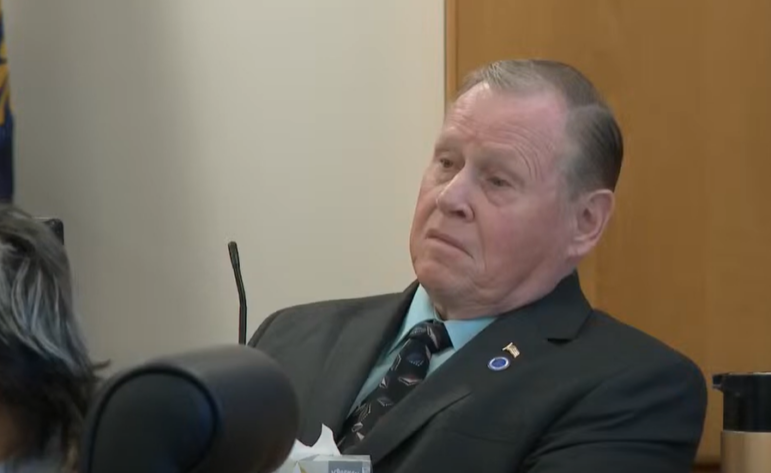By DAMIEN FISHER, InDepthNH.org
Jon Stone, Claremont City Councilor and Republican candidate for state representative, went to court this week seeking to have his police personnel files kept hidden in the face of a right-to-know request.
Stone, a former Claremont police officer, filed a motion for an injunction against the city after City Manager Ed Morris notified him of a pending release of information. Stone’s motion is sealed in the Sullivan District Court in Newport, and his attorney Peter Decato did not respond to a request for comment on Saturday.
The existence of the motion was first reported by the Claremont Eagle Times. Morris’ Aug. 28 letter to this reporter on the June right-to-know request disclosed that Stone has 11 sustained internal affairs investigations that classify as public records. Morris gave Stone up to seven days to file the motion to seal before making the records public.
Decato has protested even the fact that there are 11 sustained findings against Stone. In a “public release” sent following InDepthNH.org’s story on Morris’ letter, Decato claimed even the letter that discloses the existence of internal affairs reports should be considered part of Stone’s personnel files.
“Mr. Stone contends that none of these records should be disclosed (to include a purported score card indicating what records were sustained, unsustained or unfounded),” Decato wrote. “These records are exempt from disclosure either because the records are confidential or are records that are part of Mr. Stone’s personnel file not subject to disclosure or records, if disclosed, that would invade Mr. Stone’s privacy.”
Decato claims that disclosing the number of records that qualify for release under the right-to-know law is a violation of a court order issued by Sullivan Superior Court Judge Brian Tucker in a complaint that the city filed against this reporter.
Claremont went to court to force Tucker to decide what records should be released, but Tucker dismissed that motion and ordered the city to go through Stone’s files and determine what is public. Tucker’s order gave Stone up to seven days to file an injunction to keep the personnel files from becoming public.
This reporter first filed the right-to-know request in June seeking Stone’s files after a pair of state Supreme Court rulings overturned a nearly 30-year legal precedent concerning police personnel files, ruling that some information can be made public in some circumstances. Stone ended his employment with the Claremont Police Department sometime in 2006.
Morris’ letter states that some information from Stone’s personnel files will be redacted, such as names, dates of birth, and names of minors. The sustained finding means Stone was found in violation of police policy, city policy, or state law while working as an officer. Unsustained and unfounded allegations against Stone are not considered public information and will not be disclosed.





